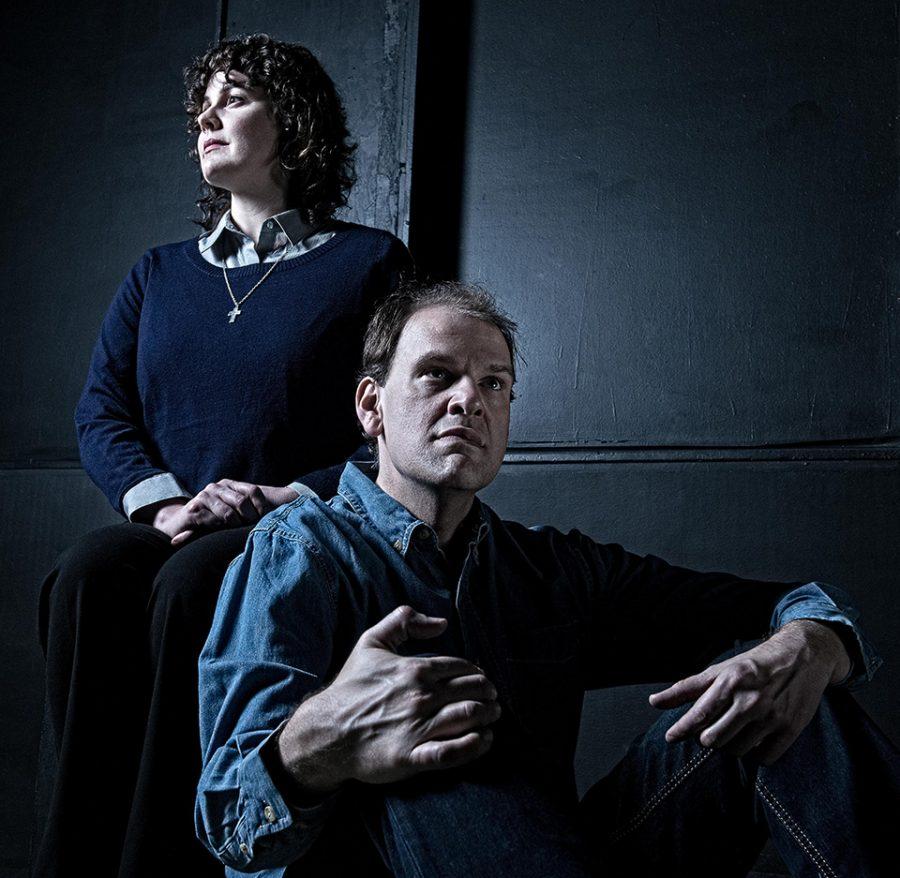Quality of Mercy Project created to spur conversation about death penalty, criminal justice
A production of the play “Dead Man Walking” will premiere at Evanston’s Piven Theatre Workshop this weekend. The play is part of the new Quality of Mercy Project, which seeks to explore issues such as the death penalty and racial injustice through a series of arts programming.
April 14, 2016
A&E
For the Piven Theatre Workshop’s executive director Leslie Brown, art can serve as a launchpad to delve into larger issues.
That’s why the Evanston-based theater company started the Quality of Mercy Project: to explore issues such as the death penalty, mass incarceration and racial injustice through a series of programs from live performances to panel discussions.
Brown said the project, launched in March, was created to pair with the play “Dead Man Walking,” which will premiere April 16 at Piven, 927 Noyes St. The project will run until May 15.
She said “Dead Man Walking,” created by actor Tim Robbins, is based on the book that tells the true story of Sister Helen Prejean, a nun who was the spiritual adviser to a death row inmate and later became an anti-death penalty activist. Brown said Prejean’s story was first adapted into a film and then a play, which has been performed at schools as an educational tool.
“When we’re talking about the death penalty and our criminal justice system, it lends itself to having discussions on a wider level,” she said. “Today, even in Evanston, these are issues that are really very, very close to home and things that our community is really interested in.”
The project, which is a collaboration among six main organizations, features about 15 events, including a film screening, panels with experts in the criminal justice system and an ongoing exhibit at the Evanston Art Center, Brown said. After certain performances during the play’s run, Piven will hold discussions with members from its partner organizations, she added.
Brown said it was crucial Piven partner with organizations based in different fields, such as the Chicago Innocence Center, the Evanston Art Center and Literature for All of Us, an organization that uses group discussions to help young people learn how to read and write.
“I don’t think any one discipline can thoroughly explore the community’s experience, so we felt it was important to include … visual art, written work, through poetry, and through play and also theater,” Brown said. “(We) try to reflect and represent the community in which we operate (and have) diversity of thought and opinion, and diversity of art as well.”
Some events will highlight the role of racial inequity in the criminal justice system, Brown said, such as “The Black Male Experience in Evanston,” a panel being held April 23, and a reading of a play inspired by the Black Lives Matter movement May 8.
“(Race) affects us in our daily lives, in an immediate sense,” Brown said. “There’s violence in our community and these issues are extremely important to our community, so I guess the question is, why wouldn’t we want to discuss these issues?”
Pamela Cytrynbaum (Medill ’88), the executive director of the Chicago Innocence Center, a nonprofit investigative journalism organization, is an alumna of Piven and will speak at two events. Cytrynbaum said she hopes people who attend the programming will learn about criminal justice and how they can help enact change.
As a young reporter, Cytrynbaum said she saw firsthand how she could make a difference. She covered a case in which an innocent man was sentenced to death, and it was because of her reporting and evidence gathering that the man was exonerated.
“My reporting was the only thing between him and the death penalty,” Cytrynbaum said. “I learned, very early, that you can stand in the way of an injustice by telling the truth and journalists have the power to do that.”
Lauri Feldman, whose documentary “The Innocent” will be shown at the Evanston Public Library on April 19, said her film deals with themes like compassion and forgiveness that are also present in “Dead Man Walking.” Although her film is about people who were wrongfully convicted and later exonerated, Feldman said she didn’t set out to take a certain stance about the death penalty and wants the stories and experiences of the exonerees to speak for themselves.
Instead of pushing an agenda, Brown said the events are intended to allow attendees to form their own conclusions about the issues explored in the project.
“What we wanted to do was open up the possibility for discussion,” Brown said. “We want it to be open for their voice to be heard and their experiences to be heard.”
Email: [email protected]
Twitter: @_rachelyang


